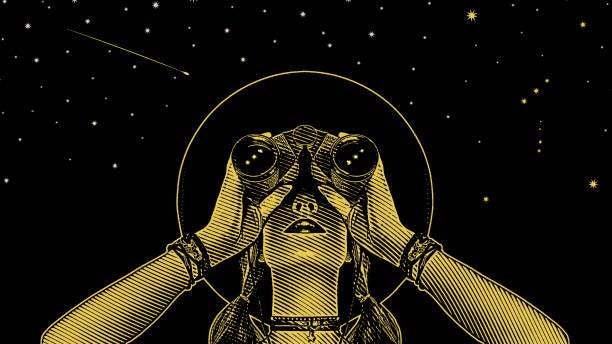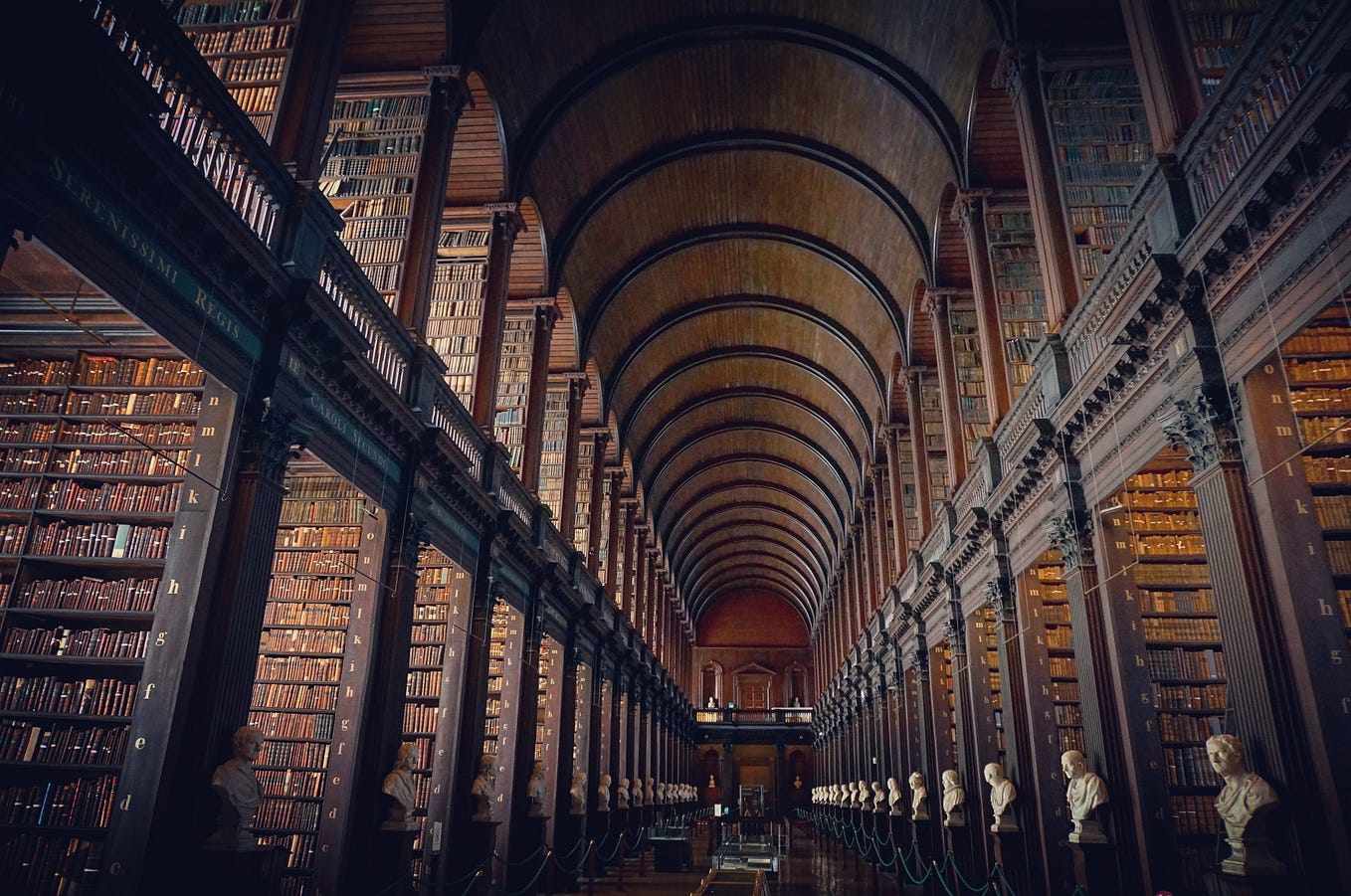Fake News and the Manifest Truth Delusion: Part 1 of 3
Dumby: Experience is the name everyone gives to their mistakes.
Cecil Graham: One shouldn’t commit any.
Dumby: Life would be very dull without them.
Lady Winderemere’s Fan, Act iii. Oscar Wilde.
Truth, Science, and Fake News
A mendacious conspiracy theorist posts a staged interview with a bogus researcher on YouTube claiming COVID-19 was intentionally released to sell vaccines. Some people believe this immediately and post to others, who believe the story immediately and pass it on. It goes viral. Posting such a fake report is unethical, of course. But is it stupid and irrational that people believed the fake report? How can we minimise the spread of false or misleading information? Is it by entrusting to a supervisory ministry or organisation the task of adjudicating on what content in the public sphere is true and educating people to wilfully refrain from believing the first thing they hear? Currently, such a task is attempted by Facebook, Google and Twitter by ostracising people from social media platforms that have for most people become their community. But is there a possibility that this could be genuinely systematic?
According to dictionary publisher Collins, 2017’s word of the year was ‘fake news’. They define it as “false, often sensational, information disseminated under the guise of news reporting”.
It may have been an event of note for a dictionary, but hoaxes, hyperbole, and misdirection have been with us since humans could lie, an ability which coincided with the emergence of descriptive language itself. Deception at a rudimentary non-linguistic level is built into much life on our planet, as witness the strategies of defensive and aggressive camouflage and mimicry even among lowly creatures such as butterflies and plants. When a butterfly displays a pattern mimicking the eyes of a predator owl on its wings, it’s making a fake news broadcast to birds that are often eaten by owls: Breaking news! You’re attacking something that’s going to eat you!
But it is only humans who have the concepts of truth and falsity, as correspondence to the facts. Only we can think of them in a detached philosophical manner, can understand theories of truth, and can form complex, long-term strategies of deception.
Everyone has their own putative examples of fake news. Some possible candidates for contemporary fake news are: The alleged deadliness of Covid-19 for the average healthy person; the alleged claim that Trump praised neo-Nazis; the claim that police in the US are disproportionately killing blacks because they are racist; the announcement by mainstream media of computer climate predictions as if these are the actual observed climate data. I’ve chosen these because they are all hotly debated and also the inspiration or pretext for violent closure of debate and the suppression of other liberties.
But what I conjecture to be fake news may not coincide with your own examples of fake news. It’s tempting for some to ask whether there could be an organisation that eliminates fake news and preserves only the true news, untarnished by bias and manipulation.
I’m going to argue that not only would the attempt to charge one organisation with the eradication of fake news do a lot of damage, it cannot succeed because it is based on a wildly erroneous view of our capacity as humans to sort truth from falsity. But in order to answer this question, we need some philosophical spring cleaning, so that we may brush away some obscuration surrounding the key idea of truth.
True-False versus Honest-Dishonest
In discussions of fake news, the subjective and objective elements are conflated. But separating them out is part of the answer to controlling the spread of false information.
In its education series for children, the BBC informs them regarding fake news, “…it’s really a challenge for media organisations, social media organisations and really all of us to try and figure out how to separate the truth from the fiction.” Fiction is imaginary stories for entertainment, not presented as true, but rather advertised as false. Still, sometimes fiction is claimed to be based on some important truth or, as in Jonathan Swift’s Gulliver’s Travels, suggests truths through satire. Here, the BBC is using it in the pejorative sense of purposely false and misleading accounts.
During Joe Rogan’s interview of Tim Kennedy, Rogan and Kennedy, lamenting the fact that there are no unbiased sources of information, asked “How can we get information without bias?” (Joe Rogan Experience Episode #1535. 1hr. 56m in.) Rogan confidently speculated that in the future we would be able to separate the truth from deception because we’ll be able to read peoples’ minds. Rogan is convinced by Elon Musk’s idea that at some point we will be able to see directly — manifestly — what people think through his Neuralink.
Both Rogan and the BBC are conflating the True-False dichotomy with the Honest-Dishonest dichotomy.
Recall the Collins definition of fake news: “false, often sensational, information disseminated under the guise of news reporting”.
The most important component of fake news is the false claim. A lie is an intentionally false statement. One “paradox” that follows from that is that a lie may be true, since all liars are human and humans are fallible. Liars make mistakes, too. The mere intention to utter a false statement does not make it false, just as the honest attempt to state the truth does not make the statement true. So, even if a future version of Elon Musk’s Neuralink enabled us to see the “deception circuits light up” in someone’s brain, we would still have the extra task of correctly classifying the report as false or true. This highlights a problem about controlling fake news. The only component of the Collins definition that is not about a subjective state of the reporter/faker is the “falsity” component. This is a better target for the control of error, as opposed to the control of dishonesty. Science focuses on the true-false rather than the honest-dishonest valuations.
True-False versus Honest-Dishonest in Science
When Newton’s theory was pitted against Einstein’s theory, Newton’s and Einstein’s honesty was not at issue. Science does have an ethos of honesty in the report of test results and calculations, but this honesty may be compromised by political incentives and other intrusions.
But we must distinguish between lying about observations and lying about scientific laws. This will help us to extract a lesson from science about an ideal journalism. Could Newton have lied about gravitation? Would it make sense to say Newton lied when he conjectured that the gravitational attraction between any two-point masses is directly proportional to the product of their masses and inversely proportional to the square of their separation distance? A little logic will show this to be ludicrous. An omniscient god, who knew in advance all laws, could conceivably lie about the universal structure of the universe, but not a mere human. This is because laws go far beyond any possible observation, and are therefore far from manifest.
A scientific law is a universal statement covering the whole of space and time. Consider the much simpler law “All swans are white”. To be able to lie about such a law, one would need to be in the omniscient position of a god, seeing the actual law applying throughout the universe, but then intentionally assert any one of an infinite number of false laws, laws you can see aren’t true. As David Hume pointed out in his devastating attack on Baconian induction, no matter how many white swans you have observed, the very next swan you observe may be non-white. So you cannot infer that all swans are white even after having observed a billion white swans. You can’t even say that the probability that the next observed swan being white is higher, for there are an infinite number of potential swans in the past, present and future. Scientists cannot observe laws, as if through the eyes of a god, as manifest truths; they can only conjecture them.
Of course, they can observe particular events and these may be refuting instances, for example, a non-white swan. It’s conceivable that Newton knew of a refuting instance to one of his laws and failed to mention it or lied about it. He could have lied about his calculations in applying his laws to the explanation of, say, the orbits of the planets. But not the laws as such. Any concern over deception in science can only be over test results, or of calculations.
At the end of the day, humans have to actually test the conjecture itself, not its pedigree. What about the reports of particular circumstances, the observation reports from the tests? That would be the equivalent of reporting on news events. Scientists can lie there. However, when science uses observational reports in tests, the tests are in principle reproducible by anyone. So if there is a question of the honesty of the report, we test, not the person, but the report itself.
But the question of honesty does rise in connection with climate-change research. Here, three things are often viewed as one: the computer models of climate (involving laws and boundary conditions, coefficients, etc), the predictions of climate from those models, and the actual test results (the comparison between the predictions and the actual measurements of climate — temperature, etc). Often the latter two are conflated by the media, so that the latest prediction from a model is announced as if it were a test result. Often, the actual test results — which have persistently refuted the model predictions — are ignored by the mass media. Failed scary predictions aren’t newsworthy, so each one evaporates from the public domain. The public is left with the impression that the predictions were successful.
Science is one thing; politics is another. We’ve seen how this open mechanism of critical debate within science, highlighted by the Einstein tests, tends to get corrupted the more closely science is aligned with politics or ideological agendas. The Climate Research Unit of East Anglia constructs the global temperature series used by the Intergovernmental Panel on Climate Change (IPCC). When a researcher asked for access to examine its underlying data and methodology, Professor Phil Jones, director of CRU, said:
“Why should I make the data available to you, when your aim is to try and find something wrong with it?”
It seems to have escaped Professor Jones that trying to refute theories and purported data is just science doing its job.
When climate scientists found serious errors in the hockey stick graph (the poster picture for the 2001 IPCC report), this was framed not as a scientific problem, but as a political problem:
“…seen as outright dangerous, because it could be instrumentalized and undermine the success of the IPCC process” (Deming, D. Global warming, the politicization of science, and Michael Crichton[WLC1] ’s “State of Fear”. Journal of Scientific Exploration, 19 (2).)
Is it time to liberate science from politics? My point is not that truth is irrelevant to politics. Truth can undermine even well-intentioned policies that don’t work. Nor is it that honesty is irrelevant to science. If scientists were predominantly dishonest, science would collapse. The point is that the methodology of science holds up a good standard to aim for in journalism. The same point applies to fake news — ideas, once expressed, are external to the person who expressed them, and so should be evaluated in the same way science evaluates all claims, based on their truth/falsity, not the qualities of the person who expressed them.
The BBC: An Inchoate Ministry of Fake News?
In a farewell message to BBC staff in January 2020, the Director-General of the BBC Tony Hall seemed to suggest that the BBC could perform this function of separating systematically truth from falsity. Hall claimed that “More and more, in the fake news world, truth is a priceless commodity in our societies. So let’s not forget that… the BBC…is a remarkable asset: the pre-eminent provider to the world of facts you can trust.” In the same talk, Hall also implied that he is, nevertheless, partial in promoting a particular worldview and set of government policies. Hall cited an interview with a WHO health leader, who asserted that, according to polls, even if there were a vaccine for Covid-19 tomorrow, 30% of people would not take it because there is, he said, “…another pandemic — that of misinformation”. The suggestion is that it is the BBC’s noble goal to sit in ultimate judgement on what is and what is not fake news, and to promote its worldview.
The BBC’s role is “much more than protecting integrity in news”, but is also “about helping to protect our democratic integrity, and fostering unity and cohesion.”
How could anyone disagree with integrity, unity and cohesion? They could if these are merely code words for the suppression of diverse opinions on issues to which the BBC has already determined the appropriate stance. David Sedgwick’s book BBC: Brainwashing Britain? [2018] does a good job debunking some of the persistent fake news stories emanating from the BBC and exposing its worldview and agenda beneath the sugary words of unity and cohesion.
One example is the “fine-people” hoax of Charlottesville. The mainstream press created the hoax by consistently omitting the second half of President Trump’s comments about Charlottesville. If you only see or hear the first half of what the president said, you can hardly be blamed for thinking that the president is calling neo-Nazis “fine people.” However, in the second part of Trump’s comments, he clarified, “You had people in that group who were there to protest the taking down, of to them, a very, very important statue and the renaming of the park from Robert E. Lee to another name.” In other words, the President believed there were non-racists in attendance who support keeping historical monuments. The President continued with “I’m not talking about the neo-Nazis and the white nationalists, because they should be condemned totally — but you had many people in that group other than neo-Nazis and white nationalists, okay?” The BBC went along with that biased framing of the comments. I have yet to see an announcement correcting that.
This highlights the most common aspect of “fake news”, which is not direct lying, but rather the framing of reports in highly misleading ways. The only antidote is to draw attention to context and perspective. Another example is the framing of climate announcements by the BBC. I have often heard news anchors say “this month set a new high temperature record”, without mentioning from what year the records began. And I have never heard such announcements placed in historical and geological context of the respectable view that we are in an interglacial, and it is cooler now than it has been since roughly 5000–7000 years ago. It was warmer during the Medieval warm period, and warmer still during the Roman warm period. I’m not proposing here one view as such, but pointing out that there are major researchers sceptical of the IPCC view coddled and perpetuated by the BBC and other mainstream media. (To mention only three sceptics, see Björn Lomborg, Richard Lindzen and Judith Curry.) Luckily, we do have other channels for their views to get some airing.
See here for part two of this three-part series.









